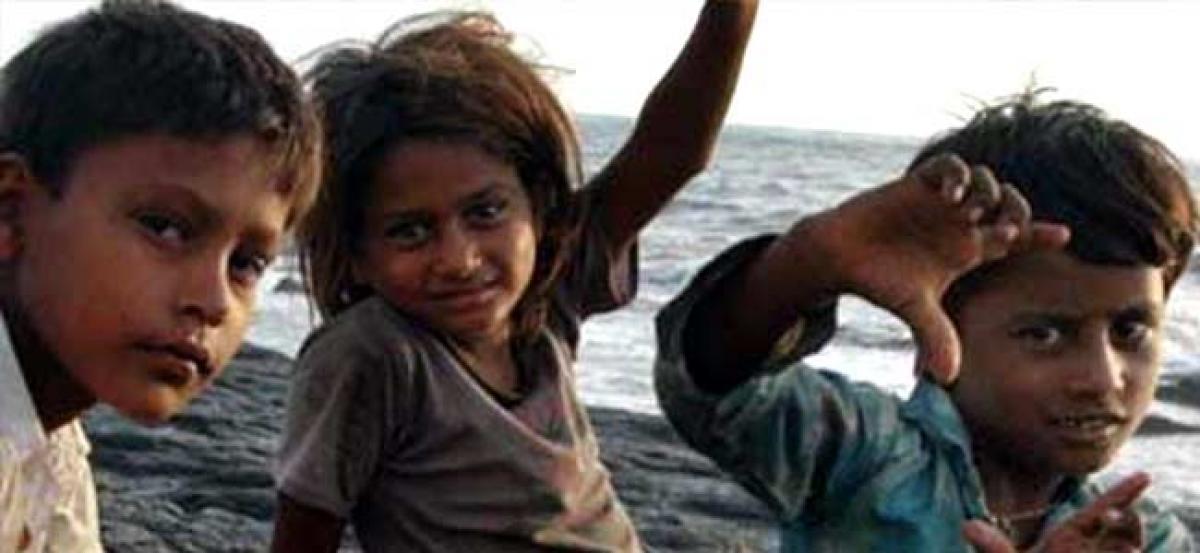Live
- Chanchalguda Jail Officials Say They Haven't Received Bail Papers Yet, Allu Arjun May Stay in Jail Tonight
- BJP leaders present evidence of illegal voters in Delhi, urge EC for swift action
- Exams will not be cancelled: BPSC chairman
- Nagesh Trophy: Karnataka, T.N win in Group A; Bihar, Rajasthan triumph in Group B
- YS Jagan condemns the arrest of Allu Arjun
- Economic and digital corridors to maritime connectivity, India and Italy building vision for future, says Italian Ambassador
- SMAT 2024: Patidar's heroics guide Madhya Pradesh to final after 13 years
- CCPA issues notices to 17 entities for violating direct selling rules
- Mamata expresses satisfaction over speedy conviction in minor girl rape-murder case
- Transparent Survey Process for Indiramma Housing Scheme Directed by District Collector
Just In

The US on Thursday accused India of not adhering to any protocol with respect to international parental child abduction, claiming 90 per cent of requests for the return of \"abducted children\" remained unresolved for over a year.
The US on Thursday accused India of not adhering to any protocol with respect to international parental child abduction, claiming 90 per cent of requests for the return of "abducted children" remained unresolved for over a year.
International parental child abduction (IPCA) generally refers to the "wrongful removal" or "wrongful retention" to another country of a child by the child's parent or guardian.
The State Department in its latest Annual Report on IPCA described India as a "non-compliant country", a tag the country carries since 2014 when the first report came out.
"India does not adhere to any protocols with respect to international parental child abduction. In 2017, India demonstrated a pattern of non-compliance. Specifically, the competent authorities in India persistently failed to work with the Department of State to resolve abduction cases," the report said.
"As a result of this failure, 90 per cent of requests for the return of abducted children remained unresolved for more than 12 months. On average, these cases were unresolved for one year and ten months," it said.
The 2017 annual report cites countries such as Argentina, Brazil, China, Japan, Jordan, Morocco, Peru, United Arab Emirates, Columbia, Egypt, Panama, Poland, Saudi Arabia, Spain, Tunisia and Ukraine.
"I am personally committed to pressing these countries to take more effective measures to resolve cases of IPCA on behalf of children and families around the world," Secretary of State Mike Pompeo said in a forward to the report.
As a Party to the Hague Convention of 25 October 1980 on the Civil Aspects of International Child Abduction (Convention), the US believes that the courts in a child's place of habitual residence should resolve matters of custody, and that abducted children should be promptly returned to their country of habitual residence, Pompeo said.
"In 2017, the competent authorities in India demonstrated a pattern of non-compliance by regularly declining to work with the Department of State toward the resolution of pending abduction cases.
Moreover, the competent authorities have failed to resolve cases," the State Department said.
It said the Indian government failed to take "concrete" steps to resolve pending cases despite repeatedly meeting with US officials to discuss abduction cases.
In 2017, the State Department reported 104 cases of abduction of US children in India. This includes 20 new cases and 84 from the previous years.
Notably, almost all such cases are results of marital disputes in which one of the parents lives in India with their children and mostly obtains court order to take custody of their kids. The other parent, an
American citizen approaches the US court and seeks governmental intervention to obtain custody of their children. In American legal parlance, officials describe this as "abduction of US children".
In 2017, the State Department received 11 initial inquiries from parents regarding possible abductions to India in which no additional assistance was requested or necessary documentation was not received as of December 31, 2017, the report said.
According to the State Department, in 2017, seven abduction cases were resolved through voluntary means.
Without the Hague Abduction Convention or any other protocols intended to resolve abduction cases, parents generally must pursue custody of abducted children in Indian courts.
"Judicial action in custody cases in India has been slow, and Indian courts tend to default to granting custody to the taking parent. The lack of clear legal procedures for addressing international parental child abduction cases under Indian law makes it difficult for India to resolve these cases," it said.
The State Department said it will continue to encourage India to accede to the Convention and expand public diplomacy activities related to the Convention.

© 2024 Hyderabad Media House Limited/The Hans India. All rights reserved. Powered by hocalwire.com







